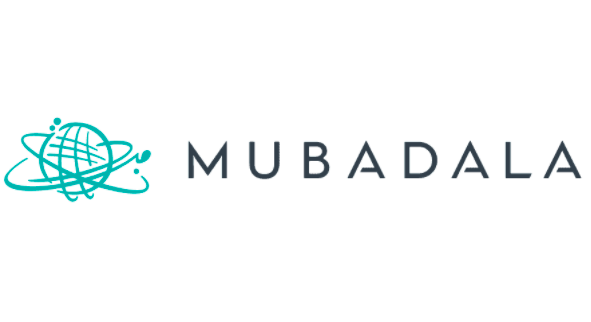Abu Dhabi’s Mubadala Investment Co. is set to become one of the world’s foremost multisector investment funds. Abu Dhabi, one of the seven Emirates, is situated on the North-Western tip of the Saudi Peninsula. What had been a fledgling pearling industry dried up in the 20th Century and the Emirate was economically unstable after the First World War; the possibility of oil in the region inspired Anglo-Persian Oil Company (APOC, later BP) to develop in the area, and the British established a developmental office. In 1952, the seven Emirates which came to be known as the United Arab Emirates coalesced in the Trucial States Council, over which the British still resided and kept the peace with a military force, the Trucial Oman Scouts. Yet in 1966 Britain was unable to maintain and administer the region, and in 1971 the Prime Minister Edward Heath withdrew protectorate status, despite the Seven Trucial Sheikhdoms offering to pay the maintenance cost. The huge reserves of hydrocarbons in the UAE, specifically in Abu Dhabi (which holds 92% of the oil and 95% of the gas in the nation), meant that they could continue to grow economically. Around 2009, the UAE began a program of liberalization and diversification away from reliance on fossil fuels.
Reminiscent of Norway’s approach in setting up its pension fund, now the world’s largest, the UAE set up Mubadala as an investment vehicle to help diversify its future industries and income. Far from slowing down during the COVID-19 Pandemic, Mubadala has continued to invest and diversify at a hurtling pace.
Currently valued at close to $232bn, the fund was created under the name ATIC in 2008, and within a few years had subsumed Chartered Semiconductor Manufacturing of Singapore and became one company under GlobalFoundries. Having funded Calxeda in August 2010 and invested in chip manufacturing to the tune of roughly $11.2bn by May 2011, the fund had planned further investments to the tune of $6bn in Dresden, Singapore, and New York. In 2014, ATIC became Mubadala Technology and continued to grow at pace, merging with sister company International Petroleum Investment Company in 2016 and leading a $60m Series B investment in logistics software startup Turvo in 2018. These investment rounds were still focused on slightly more de-risked later stage assets and very early stage investment opportunities were nowhere to be found in their portfolio. This approach is somewhat typical of private equity funds. Today however, private equity and hedge funds alike seem to be looking further upstream and are investing earlier in the cycle.
Why do we now see Mubadala pursuing seed stage deals? Only in recent years has Mubadala chosen to invest at the seed stage. The fund’s website states that they look to “partner early with visionary founders”, the real question being, how early? On one hand the multi-stage fund was acting as a “fund-to-funds” and seeding other entrepreneurial fund managers as a Limited Partner (managing money on their behalf) and on the other hand they were also doing direct deals into earlier stage businesses. Mubadala now appears to have a multi-geared approach and is seen as: “partnering with leading global growth technology funds and with early stage funds connected to early stage founders.” The key word being early stage.
The dichotomous strategy can be seen in action when observing Mubadala Ventures’ Series A investment of $23m into Dubai’s Tabby in 2020, a Buy Now Pay Later (BNPL) fintech startup. At the same time the fund was also participating in one of the largest late stage venture capital deals for the Indian ecosystem by acquiring a $1.2bn share in Reliance Industries’ Jio Platforms Limited, the leading digital services provider in India.
Mubadala Ventures has also expanded its offices into London. Their 170 employees are spread out across New York, San Francisco, London, Rio de Janeiro and Moscow. Earlier this month, it was announced that Mubadala Capital, along with Founders Factory, led a $8.5m Series A funding round for Storyblok, a ‘headless’ CMS (content management service providing “highly customizable content blocks and visual editing tools”). Moreover, the investment group is set to become a major world player in the green and alternative energy industry. Last month, Mubadala signed a Memorandum of Understanding (MoU) with Siemens Energy with the goal of “utilizing renewable energy to produce green hydrogen and synthetic fuels, providing clean and transportable energy to fuel new hydrogen-based ecosystems that are supplied from the UAE.
Investors will see this as yet another concerted effort to move Abu Dhabi’s economic interest away from fossil fuels and into a tertiary, knowledge-based economy fit for a future which may see ecological collapse.
It’s clear, then, that Mubadala has moved far beyond investing in large, established tech companies, and will not be content until they have a finger in many, nay, every pie. By investing at the earliest stage, Mubadala may hedge its bets in predicting the digital movers and shakers of the next decade, and they have active portfolio management in industries ranging from consumer products, fintech, to tech-enabled healthcare. If this trend is anything to go by, investors can expect Mubadala to move into new sectors through partnership with companies from seed to fund.



